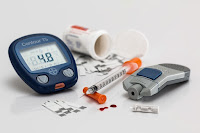At Preston Memorial Hospital,
our goal is to provide patients in Kingwood, West Virginia and
surrounding communities the very best medical care from top physicians.
With that in mind, we are thrilled to announce the addition of Dr.
Allison Cihla to our team of talented and compassionate physicians. Dr.
Cihla specializes in pulmonology, focusing the diagnosis and treatment
of disorders of the respiratory system. Her specialty areas include
working with patients with asthma, Chronic Obstructive Pulmonary Disease
(COPD) and other lung diseases.
When should you see a pulmonologist?
Pulmonology
focuses on treating the entire respiratory system. This includes
the nose, mouth, pharynx, larynx, trachea, bronchi, bronchioles and
alveoli. There are many lung and breathing disorders that require the
expertise of a pulmonary doctor. The five most common diseases include:
1. COPD
- Chronic Obstructive Pulmonary Disease occurs when a patient suffers
from lung abnormalities brought on because of conditions such as
bronchitis or emphysema. These illnesses, which cause lung inflammation,
can obstruct the airflow throughout the lungs and lead to permanent
issues.
2. Chronic Cough – The most
common cause of an ongoing cough (lasting more than three weeks) is a
respiratory infection. This can be a sign of more serious health issues.
3. Asthma
– This is typical reason that pediatric patients are referred to a
pulmonologist (although asthma can also affect adults). Asthma is a
chronic health issue impacting the bronchial tubes. When they become
inflamed, the patient suffers from extreme shortness of breath and
wheezing. Severe conditions can lead to respiratory failure and in
extreme cases, death.
4. Cancer – Lung cancer is the rapid growth of tumors in the lungs that if left untreated can spread to other tissue and organs.
5. Difficulty Breathing-
Patients with undefined issues that cause breathing difficulties might
also be referred to the care of a pulmonary doctor. If the issue is
ongoing, it could be the sign of a more serious health issue.
Other reasons that patients might see a pulmonologist include:
· ARDS (Acute Respiratory Distress Syndrome)
· Bronchitis
· Cystic Fibrosis
· Emphysema
· Coughing Up Blood
· Obstructive Sleep Apnea
· Excess Fluid in the Lungs
· Sarcoidosis
· Solitary Pulmonary Nodule
· Tuberculosis
· Pneumonia
· Pulmonary Hypertension
· Pulmonary Embolism
If
you or someone you know is struggling with any of the above noted
conditions, seek the care of a qualified pulmonologist immediately. Dr.
Cihla is currently accepting new referrals. Contact her today at
304-329-4701








